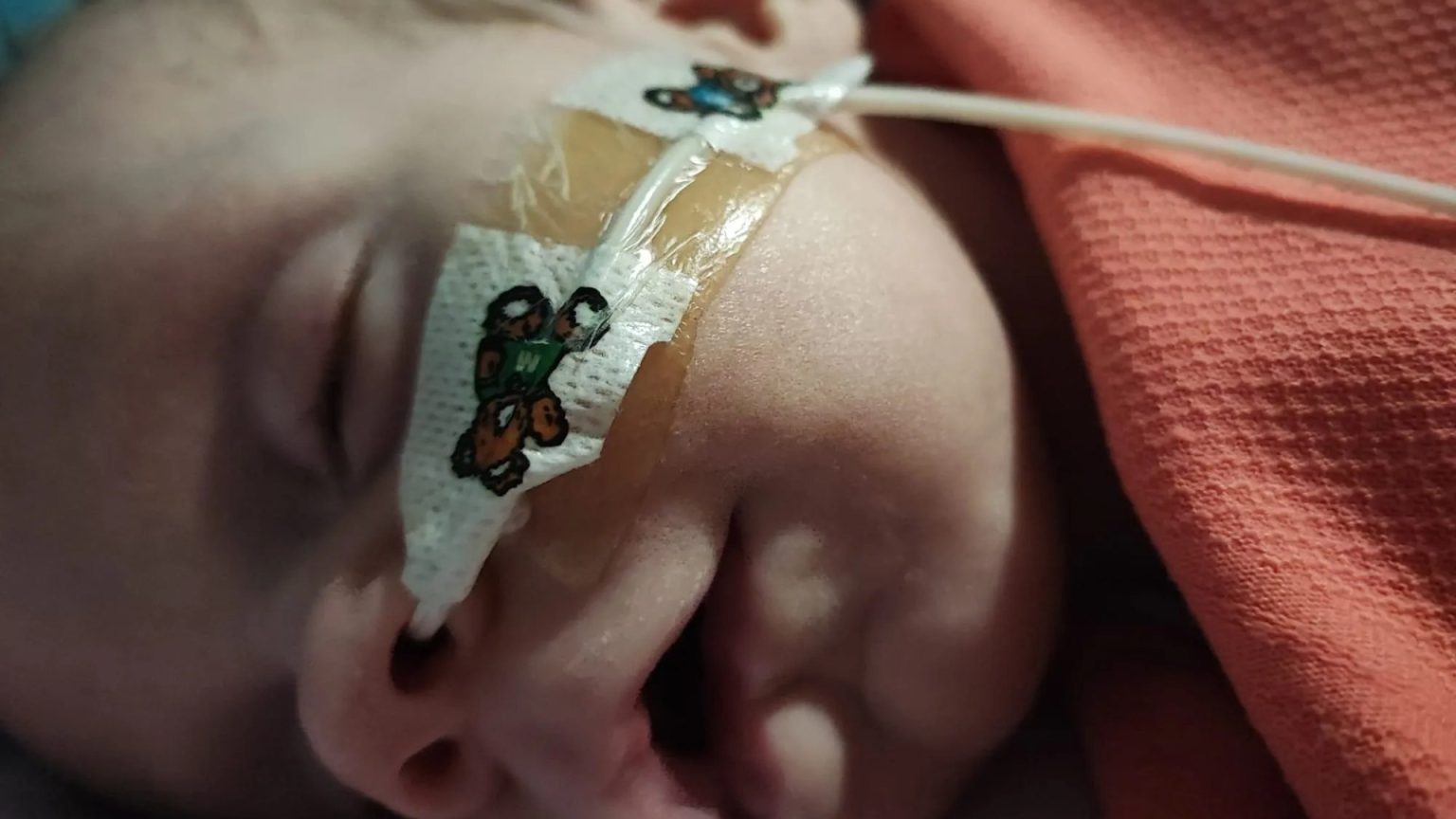Louie Moss’s short life was tragically marked by a misdiagnosed brain tumor. At four months old, Louie began exhibiting symptoms such as failure to thrive, lack of weight gain, and frequent vomiting. Initially, doctors attributed these symptoms to a milk allergy stemming from breastfeeding and even teething. Antibiotics and a milk alternative were prescribed, but Louie’s condition continued to deteriorate. His parents, Robert and Molly Moss, grew increasingly concerned as their son’s symptoms persisted, contrasting sharply with the development of their older son, Eli.
A turning point came when a lumbar puncture performed at Peterborough City Hospital revealed an elevated white blood cell count. A subsequent CT scan unveiled the devastating truth: Louie had a substantial brain tumor. The diagnosis came as a shock to his parents, who were unprepared for the news that their infant son was facing such a serious illness. They were left grappling with the reality of a disease they knew little about, and the realization that it had taken hold of their child so early in life. The family questioned why the diagnosis hadn’t been made sooner, feeling that a brain tumor in an infant was perhaps overlooked due to its rarity.
Louie was transferred to Addenbrooke’s Hospital in Cambridge, where he suffered a cardiac arrest but was resuscitated. Emergency surgery was performed to drain fluid from his brain, followed by a second operation days later that successfully removed over 80% of the tumor. This initial success offered a glimmer of hope, but the respite was short-lived. Within two weeks, a follow-up scan delivered the crushing blow: the tumor had returned to its original size.
Faced with this devastating news, Louie’s parents were presented with the option of chemotherapy. However, medical advice indicated that Louie’s prognosis was terminal. After agonizing deliberation, they made the heartbreaking decision to forego chemotherapy, believing that subjecting their infant son to the grueling treatment, given the aggressive nature of the tumor, would only prolong his suffering and ultimately prove futile. They opted instead to prioritize his comfort and well-being during the time he had left.
Louie received palliative care at East Anglia Children’s Hospice in Milton, Cambridgeshire, where he passed away in April 2022 at the tender age of six months. The loss of their son left an immense void in the lives of Robert and Molly, and they were left to cope with the unimaginable grief of losing a child. Robert, determined to honor Louie’s memory and make a meaningful contribution to the fight against brain tumors, decided to channel his grief into action.
In April 2023, one year after Louie’s passing, Robert embarked on a significant personal challenge: running the London Marathon to raise funds for Brain Tumour Research. This undertaking was particularly demanding for Robert, as his previous longest run had been a half marathon over a decade earlier. Juggling work, parenting duties (including caring for his two other children, aged eight and ten months), and marathon training proved to be a difficult balancing act. However, he drew strength and motivation from other runners participating in the marathon for similar causes, finding solace and support within the shared experience.
Robert’s motivation extended beyond personal achievement. He envisioned a future where patients diagnosed with brain tumors are afforded every opportunity for a positive outcome. He hoped that his fundraising efforts would contribute to research and advancements in treatment, ultimately leading to improved survival rates and a potential cure. His dedication stemmed from the deep desire to prevent other families from enduring the same heartache and loss that he and Molly had experienced. He aimed to transform their tragedy into a catalyst for change, promoting awareness and driving progress in the fight against this devastating disease.
Louie’s story highlights the critical need for greater awareness and research in pediatric brain tumors. Brain tumors are the leading cause of cancer-related deaths in children, and the variety of tumor types makes effective treatment particularly challenging. Louie’s misdiagnosis underscores the difficulty in detecting brain tumors in infants, as their symptoms can often mimic those of more common childhood ailments. Increased awareness among healthcare professionals, coupled with further research into early detection and treatment options, is essential to improving outcomes for children like Louie. Robert’s marathon run serves as a poignant reminder of the urgency of this mission, and his fundraising efforts provide vital support to organizations like Brain Tumour Research, working towards a future where brain tumors are no longer a death sentence for young children.




